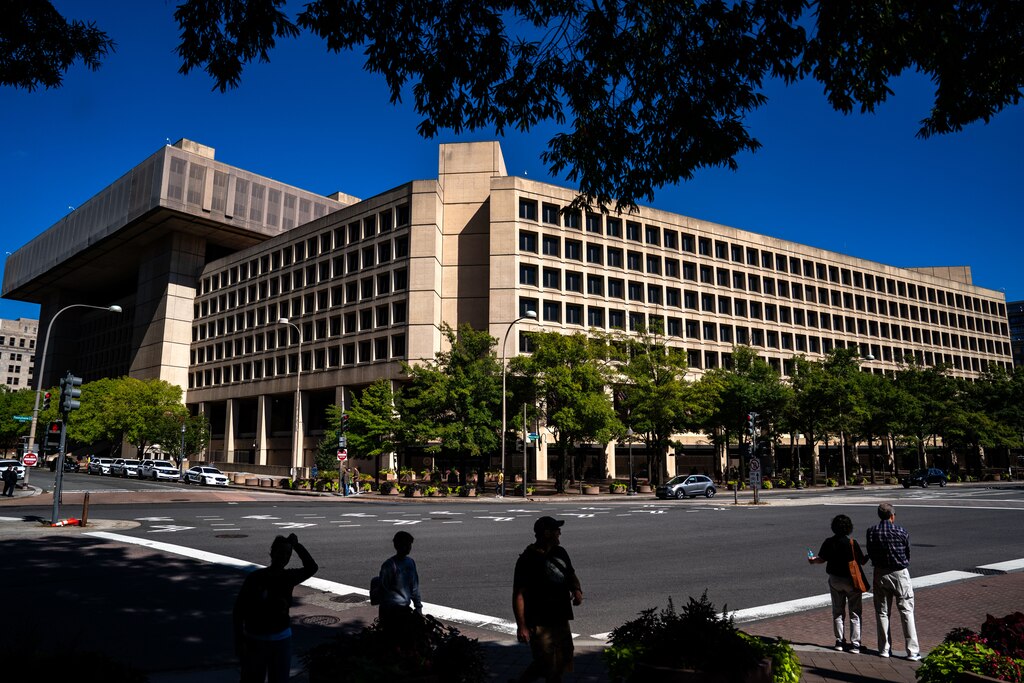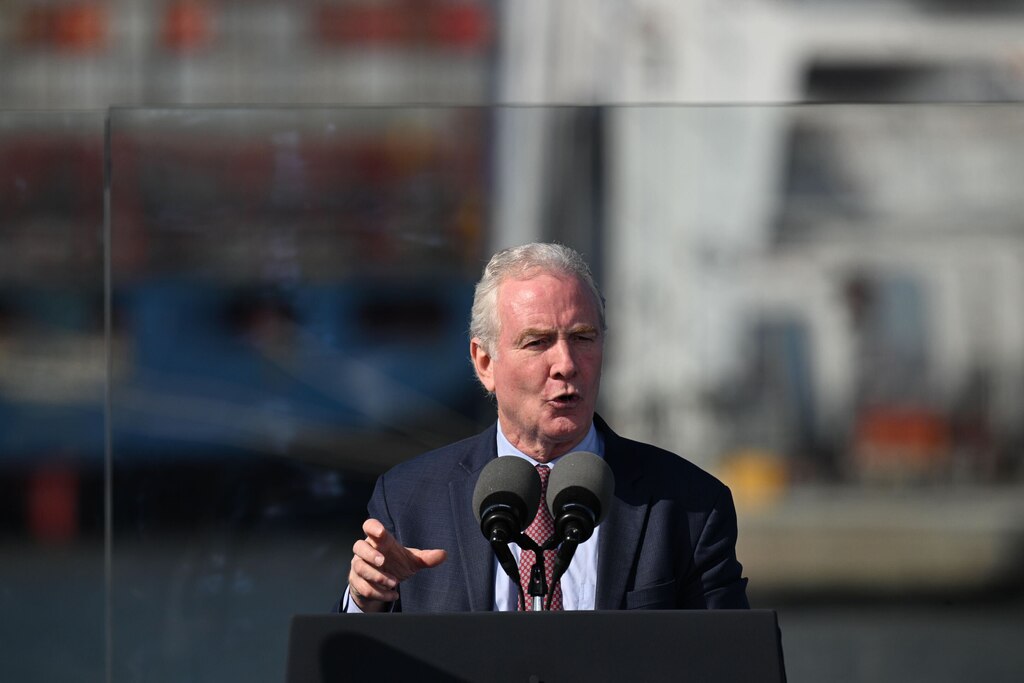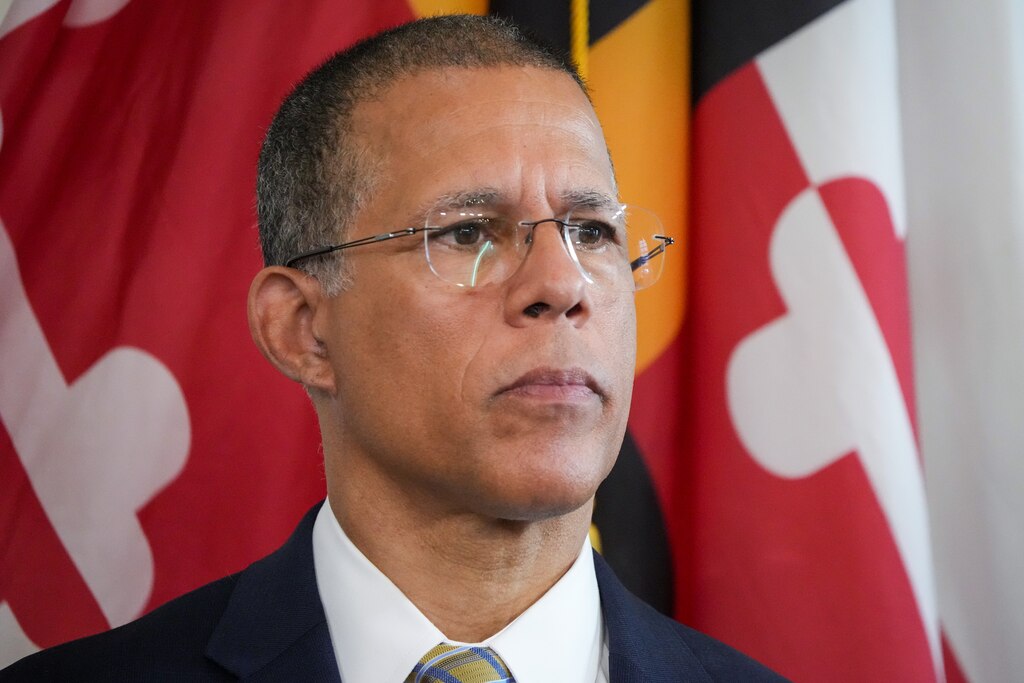The majority of Marylanders didn’t select Donald Trump as their next president, but his policies may alter their everyday lives, affect state income tax revenue and stable federal jobs, and sever sorely needed federal resources.
The incoming Republican has already threatened to reverse hard-fought victories won by Maryland Democrats, like the relocation of the Federal Bureau of Investigation headquarters to Greenbelt and stripping future funding promised by President Joe Biden’s infrastructure and clean energy legislation.
As Gov. Wes Moore, a state and national Democratic Party leader, guides Maryland through a Trump presidency, he and fellow lawmakers must consider what’s at stake and what they can protect. They’ll also need to weigh how Trump, a Republican who has pledged to punish his political enemies, may react to Maryland Democrats who doggedly campaigned for his opponent and led impeachment efforts against the once and future president.
Moore will meet with his cabinet Friday to discuss a framework his administration has been preparing for months in the event Trump won the election.
The Baltimore Banner thanks its sponsors. Become one.
“Governor Moore will continue to advocate for priorities like women’s reproductive freedom, eliminating child poverty, growing the economy, and bolstering transportation,” Moore spokesperson Carter Elliott IV wrote in a social media post Thursday.
Similarly on the West Coast, California Gov. Gavin Newsom, a Democrat and outspoken Trump critic, called a special session ahead of the federal transfer of power “to safeguard California values and fundamental rights in the face of an incoming Trump administration,” reported the New York Times.
Federal delegation will continue bipartisan work
Between Trump’s statements and ideas floated in Project 2025, a conservative agenda written by his allies, Democratic lawmakers have reason to be concerned about the unique and detrimental effect those plans could have on Maryland.
Democratic Sen. Chris Van Hollen said Maryland’s federal delegation is prepared to work with their Republican colleagues to preserve their hard work, and that not all of it can be easily reversed.
Federal and local officials in Maryland lobbied the federal government for years to relocate the Federal Bureau of Investigation headquarters to Greenbelt. Trump has said he’d prefer the office remain in Washington.
The Baltimore Banner thanks its sponsors. Become one.

Van Hollen said the decision was made after a thorough review and vetting by the U.S. General Services Administration and cannot easily be undone.
“Trump can’t just wake up tomorrow and say it’s going to be in D.C.,” he said.
Protecting Maryland’s interests under a Trump administration is possible because the state’s delegation has done it before, Van Hollen said. When Trump struck Chesapeake Bay protections from his first budget, Van Hollen recalled, the delegation succeeded in not only restoring but raising funding with Trump still in office.
“By working with our Republican colleagues we were able to protect Maryland priorities last time and plan to do so this time around,” he said.
Under Trump, the livelihoods of federal employees may be at risk. Trump has said he’ll revisit laws protecting federal workers from being fired more easily, and consider relocating federal workers away from Washington, D.C. Maryland has more than 142,000 federal civilian employees, according to the Congressional Research Service, and a stop to the flow of these income taxes could have a negative affect on Maryland’s already slow-growing economy.
The Baltimore Banner thanks its sponsors. Become one.

Trump has also floated the idea of replacing merit based federal employees with politically aligned ones.
Van Hollen said having a civil service based on partisan political favoritism rather than merit is a “dangerous road to go down” and is “not in the best interest of the country.”
A sizable chunk of Maryland’s cash flow, about 20%, comes from the feds, according to 2021 numbers. This money covers the cost of social programs, like Medicaid, health care coverage for low-income earners, and education programs, like Head Start, which provides free early childhood education to children younger than 6 from low-income families. The Project 2025 plan calls for the elimination of Head Start.
Other moves could possibly end projects in Maryland to improve roads, public transit, ports and clean water and energy initiatives. Trump has said he would claw back unspent funds earmarked under landmark climate and infrastructure laws passed under the Biden-Harris administration.
The return of Infrastructure Week
Then there’s the estimated $2 billion rebuild of the collapsed Francis Scott Key Bridge. Maryland is already set to receive 90% of the funds from a federal emergency relief fund. Van Hollen described the fund as a “national pot of money that everyone has an interest in replenishing” because someday their jurisdiction could need similar help.
The Baltimore Banner thanks its sponsors. Become one.
One week ahead of the election, Biden called on Congress to set aside the other 10% by the end of this year. And Van Hollen said the delegation, including Republican U.S. Rep Andy Harris, will work to secure 100% of the cost from that fund.
The bridge, a crucial connector that routes traffic around Baltimore, carried an average of more than 34,000 cars per day in 2023 before a cargo ship crash sent the structure crashing into the Patapsco River. The downed bridge crossed into state Sen. Johnny Ray Salling’s Baltimore County district.
The Republican state lawmaker wants Congress to swiftly appropriate those additional funds. He said he spoke with Harris about Key Bridge funding at a Maryland GOP election night watch party just as the results turned in Trump’s favor.
Salling recalled Harris telling him that there were still many unknown factors. Salling said he thinks the funding will eventually materialize over the course of several years, but said there are many unknowns about what a possibly Republican-led Congress will decide.
Does he think Trump will keep Biden’s bridge promise? ”All we can say is we hope he does,” Salling said.
The Baltimore Banner thanks its sponsors. Become one.
Trump backer Harris broke with party hard-liners and said the federal government should pay for the bridge. He’s also cosponsoring legislation to fully fund the project. Harris, who represents Maryland’s Eastern Shore, sits on the powerful congressional Appropriations Committee. He did not respond to an interview request.
Maryland GOP spokesperson Adam Wood said Trump will be a “unifying” president and that concerns over him blocking infrastructure plans or acting out of political revenge in Maryland aren’t based in fact.
“The left has to give Donald Trump a chance, and if they are going to criticize him it has to be on something truthful,” Wood said.
“Donald Trump made his money in real estate,” Wood said. “He understands the value in infrastructure to our private sector; if anyone understands the value of infrastructure it’s him.” During his first term, Trump repeatedly promised massive infrastructure investments that he never delivered.
AG will defend Marylanders’ rights
Maryland Attorney General Anthony Brown is also gearing up, saying he’ll defend Marylanders’ civil rights and is prepared to use the courts to challenge any infringements by a Trump administration. Brown said he would seek additional state funding to form a federal litigation team.
The Baltimore Banner thanks its sponsors. Become one.
“Preserving the rule of law in service of justice for every Marylander remains my highest priority,” he said in a statement.

Brown said he has spoken to Moore about his plans and the two share “complete alignment and fidelity” when it comes to their values and priorities and the “need for us to be vigilant” in protecting Marylanders.
The General Assembly, under Trump’s first presidency, gave Brown’s predecessor Brian Frosh the power to sue the federal government independent of the governor. Frosh used the Maryland Defense Act of 2017 to successfully sue Trump’s administration dozens of times in the president’s first term.
Among the reasons: to protect civil rights, to preserve the Affordable Care Act used by hundreds of thousands of Marylanders, to guard access to contraception and access to food stamps, and to keep offshore drilling away from the Chesapeake Bay.
Housing hurdles
Moore’s housing secretary Jake Day is also warning that the state’s housing plans may become more challenging under a Trump presidency.
The Moore-Miller agenda won’t change, Day said Thursday, but it’s possible that federal policies make it more difficult to build much-needed housing across the income spectrum.
Day pointed to the newly enacted Just Communities Act that Maryland lawmakers passed during the 2024 legislative session, which prioritizes some blighted and impoverished communities for funding.
Day said while he doesn’t expect all federal funding opportunities to “evaporate,” the priorities of Maryland and the White House may no longer be in sync. It’s possible, Day said, that Trump makes good on promises to deregulate some of the barriers to housing production and provides a more favorable tax environment for housing developers.
”Everything’s at risk of being different,” he said. “I know there are going to be challenges.”
Banner reporters Adam Willis, Maya Lora and Hallie Miller contributed to this report.





Comments
Welcome to The Banner's subscriber-only commenting community. Please review our community guidelines.